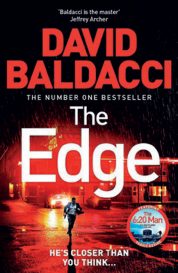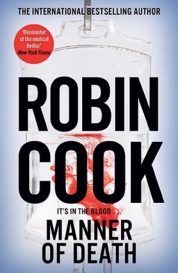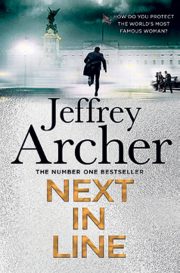WHAT’S A THRILLER? David Morrell says thrillers strive for heightened emotions and emphasise the sensations of what might be called an obstacle race and a scavenger hunt. Something has already happened or is about to happen, and it is up to the protagonist to make sure all is well with the world, by answering the heart-pounding high-tension questions: will they stop the bomber in time, will they save the world, will they nab the arch villain before more innocents die?
Unlike a mystery, which centres on solving the puzzle of whodunnit, in thrillers we already know the identity of the villains. Many thrillers inhabit a particular profession — law (John Grisham), medical (Robin Cook), political (David Baldacci), ex-military (Lee Child). Others like Thomas Harris, Stephen King, Riley Sager, and Dean Koontz, have popularised the serial killer, horror, and genre bending variety.
In the past, thriller writers focused on espionage and international intrigue, reflecting the global preoccupation with the Cold War. But now, as society’s fears and interests have changed, so has the thriller writer’s beat. Recent ones include a range of techno-thrillers (Michael Crichton’s Jurassic Park is an early avatar), psychological thrillers mainly focusing on the domestic drama (Gone Girl, Girl on the Train varieties), and nordic noir (serial killers popularised by Jo Nesbo and Stieg Larsson), spy thrillers (Mick Herron), to name a few.

With this huge influx of sub-genres and writers into the thriller domain, how have the old-timers coped with it? They’ve done it in three ways: first, by creating a series character such as Michael Connelly’s Lincoln Lawyer series with Harry Bosch. Second, the old-timers have tapped into the goodwill created by their name recognition and loyal reader base to branch out into writing several series. Third, they’ve adopted the structure of present-day thrillers — short chapters, short sentences, fast pace, few descriptions, and a focus on action rather than emotions.
The problem is that these seasoned writers know that emotion trumps action any day with the reader who, more than anything else, wants to identify with the main character. However, the present day thriller book structure doesn’t allow them to delve deeply into the emotional core of the story, a disconnect some tackle better than others, and in some books better than others in their series. Also, the thriller structure assumes the reader has read the previous books in the series and the author is forced to summarise the backstory, that often, fails to create the emotional connect of the main character with new readers. These writers have adopted present day emphasis on a thrilling first chapter. A chase, international hitmen, a victorious hero. This is the curse of Amazon’s Kindle where the first chapter can be read for free. However, much of the book may have little to do with the heart-pounding action in the first chapter, and may even be a letdown.
We can see these trends in the books by the authors reviewed below, all doyens of the thriller genre with a prolific output. David Baldacci has the Amos Decker, Atlee Pine and Travis Devine series, Robin Cook has the Jack Stapleton and Laurie Montgomery, and the Pia Grazdani series, and Jeffrey Archer has the Clifton Chronicles and the William Warwick series, among others.
David Baldacci, whose political thriller, Absolute Power (an absolute favourite of mine) was a ripping, heart-pounding cat and mouse game between a burglar (played by Clint Eastwood in the movie version) and the highest levels of the American Presidency, and yet remained deeply embedded in a father-daughter emotional tussle. In his new book, The Edge, a sequel to The 6:20 Man, the protagonist Travis Devine is an ex-Special Ops Army man, now part of an elite undercover team in Homeland Security. The Edge (Macmillan; 432 pages; ₹750) begins on a high octane note — a face-off between Travis and a hitman trio on a bullet train between Geneva and Milan. Then Travis is asked by his boss as a personal favour to investigate the murder of a senator’s daughter, Jennifer Silkwell, near the senator’s family home in Maine. Jennifer was a CIA operative and a rising star, privy to high-level secrets. Was she murdered because of her job or was there a different and more personal reason? As Travis investigates — the thriller now morphs into domestic suspense and mystery — he meets and falls in love with Jenny’s younger sister Alex, an artist who lives in the gothic family home with her tattoo-artist older brother, Dak, an ex-soldier who has been dishonourably discharged.
The deeper he digs, the more Travis realises that small towns and the families who live there harbour horrific secrets, for which the killer will kill again.
David Baldacci follows the structure of present-day thrillers — fast-paced action scenes and short chapters to appeal to readers who want to finish it during their plane or train rides. Here too, like in his earlier books, the driving force is Travis’ emotional world — his attraction to the victim’s troubled younger sister and his quest to bring justice to her trauma
Share this on 

Baldacci follows the structure of present-day thrillers — fast-paced action scenes and short chapters to appeal to readers who want to finish it during their plane or train rides. Here too, like in his earlier books, the driving force is Travis’ emotional world — his attraction to the victim’s troubled younger sister and his quest to bring justice to her trauma. Those who enjoyed The 6:20 Man will cheer Travis on in his second outing.

ROBIN COOK, THE king of medical thrillers with classics such as Coma and Contagion, has a new one out in Manner of Death (Macmillan; 352 pages; ₹750). Featuring his series characters, Laurie Montgomery, the chief medical examiner for New York city and her medical examiner husband Jack Stapleton, the book focuses on how far healthcare companies can go to make money. Ryan Sullivan, a brilliant but troubled resident, is on a one-month rotation in Laurie’s office. He notices that six suicides in six months have commonalities and decides to investigate. A parallel story is seen through the eyes of a former Navy SEAL-turned-assassin Hank Roberts who has been hired by a healthcare company to bump off patients angry about wrong test results: the company tests for cancer and gives a false positive result. Each of the homicides is staged as a suicide. While Laurie is steeped in bureaucratic minutiae and Jack is recovering from an encounter with a killer in the previous book, it is Ryan who leads the show in this book. The doctors find themselves in the line of fire as the company killers try to shut them up. Cook uses the trick of building up suspense by showing the reader the killer’s plan, and then making us hope that Ryan and Laurie can somehow escape unscathed. The writing is old-fashioned—with few contractions—making for a mannered, almost stilted dialogue. But Cook delivers fully on the ‘educating the reader’ front by explaining the workings of the medical examiner’s office. An enjoyable read.

JEFFREY ARCHER’S Next in Line (HarperCollins; 384 pages; ₹499) is set in 1988 London, when royal fever has reached fever pitch. Detective Chief Inspector William Warwick and his Scotland Yard squad are sent in to investigate the elite Royal Protection Command entrusted with protecting the British royal family. As Britain and the world fall in love with the “people’s princess,” maverick ex-undercover operative Ross Hogan is charged with a very sensitive — and unique—responsibility. But it soon becomes clear the problems in royalty protection are just the beginning. A renegade organisation has the security of the country — and the Crown — in its sights. Can Hogan and Warwick outwit the master criminal, (another series character) who wants revenge on them for imprisoning him? And what a clever revenge it is. This book has all the ingredients of a light-hearted caper: art theft, split-second timing, a race against time, and a history-soaked solution. Brings back a faint echo of Archer’s Not a Penny More, Not a Penny Less. Readers familiar with the William Warwick series will enjoy this one.
About The Author
Shylashri Shankar is the author of Turmeric Nation - A Passage Through India's Tastes
More Columns
Puri Marks Sixth Major Stampede of The Year Open
Under the sunlit skies, in the city of Copernicus Sabin Iqbal
EC uploads Bihar’s 2003 electoral roll to ease document submission Open